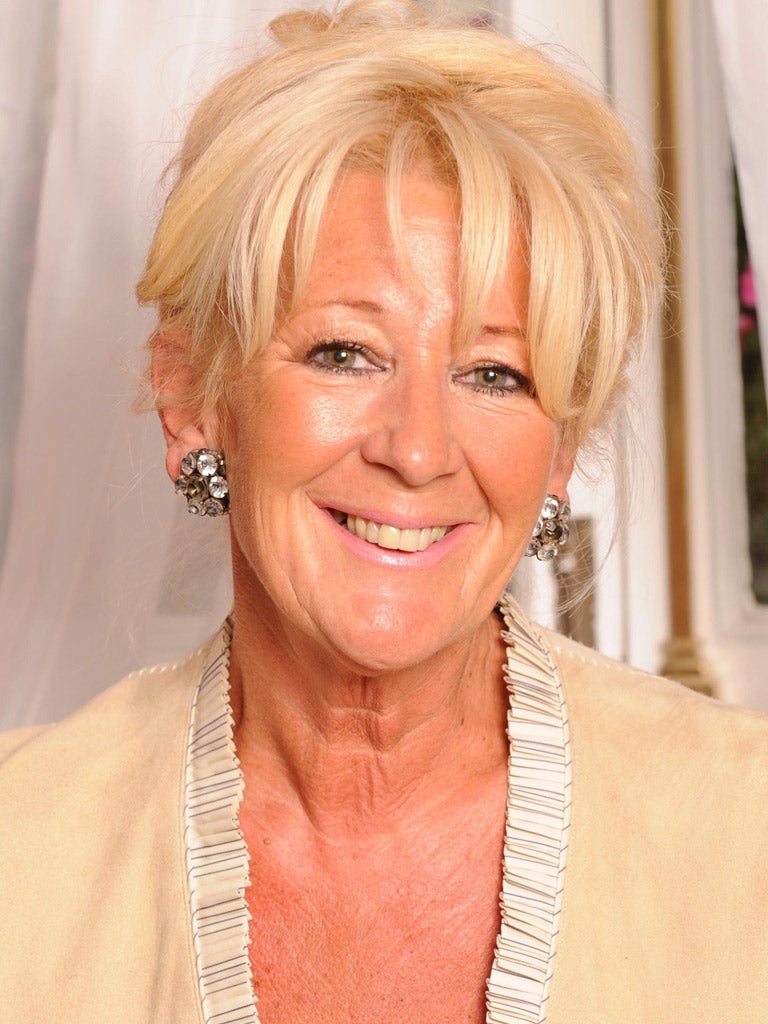Sue Carroll: Journalist acclaimed for her straight-talking columns

For the last 50 years or so the chippy female columnist, with strongly stated commonsense attitudes towards nearly everything, has been an indispensable presence in British tabloid newspapers. Jean Rook and Lynda Lee-Potter were among the acknowledged mistresses of the craft – and the Daily Mirror's Sue Carroll, who died from pancreatic cancer on Christmas Day, aged 58, has every right to be ranked alongside them.
She became a star columnist in 1998, comparatively late in her career, after holding a series of executive positions on newspapers and magazines within Rupert Murdoch's News International group. When the rival Mirror lured her away she set out her stall in her debut article with a forthright declaration of principle – in effect a manifesto for all such columns: "I'm about real life... I don't like being told what to do by bullies. I will be looking at life in a rough, no-nonsense way and, most importantly, I intend to talk from the heart."
Her favourite targets included political correctness, yobbish behaviour and the "health police". A militant advocate for the right to smoke in public, she appeared on platforms at meetings organised by Forest, the tobacco industry's lobby group, in their failed attempt to head off the Labour government's ban on smoking in pubs and restaurants. She came down hard on celebrities whose foibles and public pronouncements provoked her disapproval. In 2002 one of them, the model Naomi Campbell, sued the Mirror for breach of privacy, also alleging that Carroll's description of her as a "chocolate soldier" was racist. The High Court awarded £1,000 in damages in relation to the use of the phrase.
Yet she had many friends in the entertainment world, among them Sir Bruce Forsyth and Barbara Windsor. That she was held in the highest regard is shown by the Mirror devoting 11 pages, plus a leading article, to recording her death. She was, too, in demand as a television pundit, mostly on Alan Titchmarsh's daytime talk show on ITV.
Born in 1953 in Gosforth, Newcastle, where her father worked in a shop selling household appliances, Susan Elizabeth Carroll left the local grammar school at 18 and went to Scotland to work for two years at Jackie, a magazine for teenage girls. Her principal task was to offer advice to readers on overcoming the problems of adolescence. In 1970 she moved to London as an interviewer of celebrities for the magazine Woman. Before long she achieved her ambition to join a national newspaper, when she was hired as a reporter on Murdoch's News of the World.
Over the next two decades she alternated between that Sunday tabloid and its sister daily, The Sun, doing less and less writing as she began to climb the executive ladder. In 1988 she was made editor of Sun Woman, a weekly supplement to the daily paper focusing on topics relating to health and emotional problems. One of its prime features was the "Page Seven Fella" – a scantily-clad and well-endowed young man, a counterweight to the paper's notorious Page Three Girls.
She returned to the News of the World to edit Sunday, its weekly magazine, and in a book published to mark the paper's 150th anniversary in 1993 she was described as "a voluptuous red-headed Geordie". (On her staff was a younger woman with similar hair colouring, Rebekah Wade, who was to rise rapidly through the ranks to become News International's chief executive, the post from which she resigned this year at the height of the phone hacking scandal.)
In the summer of 2010 Carroll was diagnosed with cancer of the pancreas, the disease from which her maternal grandfather had died. During afive-hour operation surgeons discovered that two malignant tumours could not be removed because they weretoo close to an artery. A few weeks later, while undergoing chemotherapy,she suffered a stroke that left her partly paralysed. Yet the following March she was able to write a long article in the Mirror describing her illness and its treatment.
"No one has blamed my lifestyle, so I don't regret a single cigarette or cocktail," she wrote. "I'd love my old life back but I was as determined then, as I am now, not to whinge about life being unfair." She promised to renew her column; but it soon became clear that her condition was untreatable.
She was unmarried but enjoyed a 25-year relationship with a married fellow journalist. She admitted this to readers of her column: "He's a rare and special man because he makes me laugh. He is also married, which is not so funny. It's not something I expect to be applauded for. I simply say that if people could choose who they would fall in love with, life would be a piece of cake."
Michael Leapman
Susan Elizabeth Carroll, journalist: born Newcastle-upon-Tyne 6 December 1953; died London 25 December 2011.
Join our commenting forum
Join thought-provoking conversations, follow other Independent readers and see their replies
Comments
Bookmark popover
Removed from bookmarks